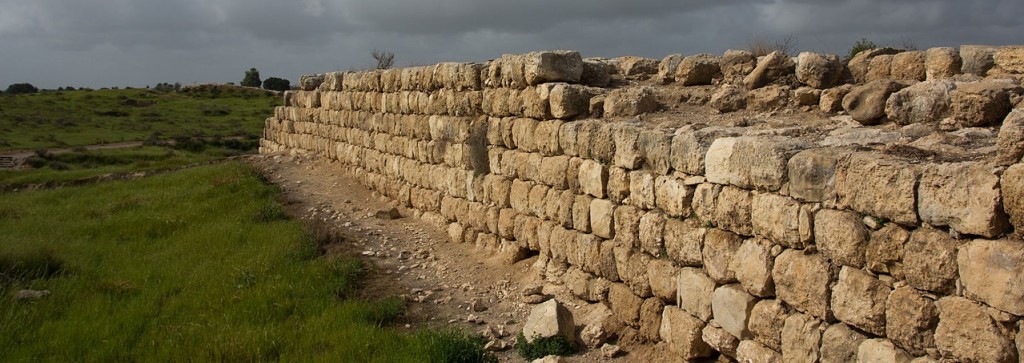In a bizarre archaeological discovery that has prompted many pun-filled headlines–for example, “Holy crap”; “When a King Means Business;” “The Wrong Kind of Throne” –even in its original December 2017 publication, “Going to the Bathroom at Lachish” by Saar Ganor and Igor Kreimermen, these archaeologists found a toilet in a pagan shrine. The original article is behind a paywall, but there are multiple free summaries of it (Newsweek, Biblical History Daily). The main thing is that this evidence has been interpreted as verification of the biblical report of Hezekiah’s desecration of a Baal sanctuary: “And they demolished the pillar of Baal, and demolished the house of Baal, and made it a latrine to this day” (2 Kgs 10:27 ESV). This seems right, but…
Today, I came across a very weird comment in an interesting article (Gnana Robinson, “The Prohibition of Strange Fire in Ancient Israel,” Vetus Testamentum 28 (1978): 301-317; here p. 307), namely, “‘excreting’ is the peculiar way of worshipping Baal Peor and ‘stoning’ the peculiar way of worshipping Merkolis (mercuris).” Robinson gets this tidbit from the Mishnah (m. Sanhedrin 7:6): “One who relieves himself to Ba’al Be’or [is liable, for] such is its worship. One who throws a stone at Merkulis [is liable, for] such is its worship.” Danby’s translation is a bit clearer: “But if a man excretes to Baal Peor [he is to be stoned, because] this is how it is worshipped. He that throws a stone at a Merkolis [is to be stoned, because] this is how it is worshipped.” Danby adds a disturbing footnote: “Num. 25:3, 5; Deut. 4:3; Hos. 9:10. The meaning of the root of ‘Peor’ is ‘open wide’.”
As far as I could tell, nobody has brought up this Mishnah text in conjunction with the mysterious toilet discovered at Tel Lachish, which according to chemical analyses was apparently never used for its practical purpose. That could mean it was a symbolic desecration, a pretend toilet. Or perhaps the analysis isn’t perfect. I’m not sure if there’s a connection, but if this Mishnah tradition is authentically relating ancient pagan practice, then Hezekiah’s toilet could be upended. Er…that is, the toilet-in-sanctuary might not be a means for desecrating the sanctuary, but rather for actually worshipping the god of that sanctuary through, um, defecatory means. I suppose we can be thankful that the means of worship have significantly changed since ancient times!
Image credit:<a href=”https://commons.wikimedia.org/wiki/User:Poliocretes”>Oren Rozen</a>, <a href=”https://commons.wikimedia.org/wiki/File:Lachish_160313_02.jpg”>Lachish 160313 02</a>, cropped, <a href=”https://creativecommons.org/licenses/by-sa/3.0/legalcode” rel=”license”>CC BY-SA 3.0</a>

